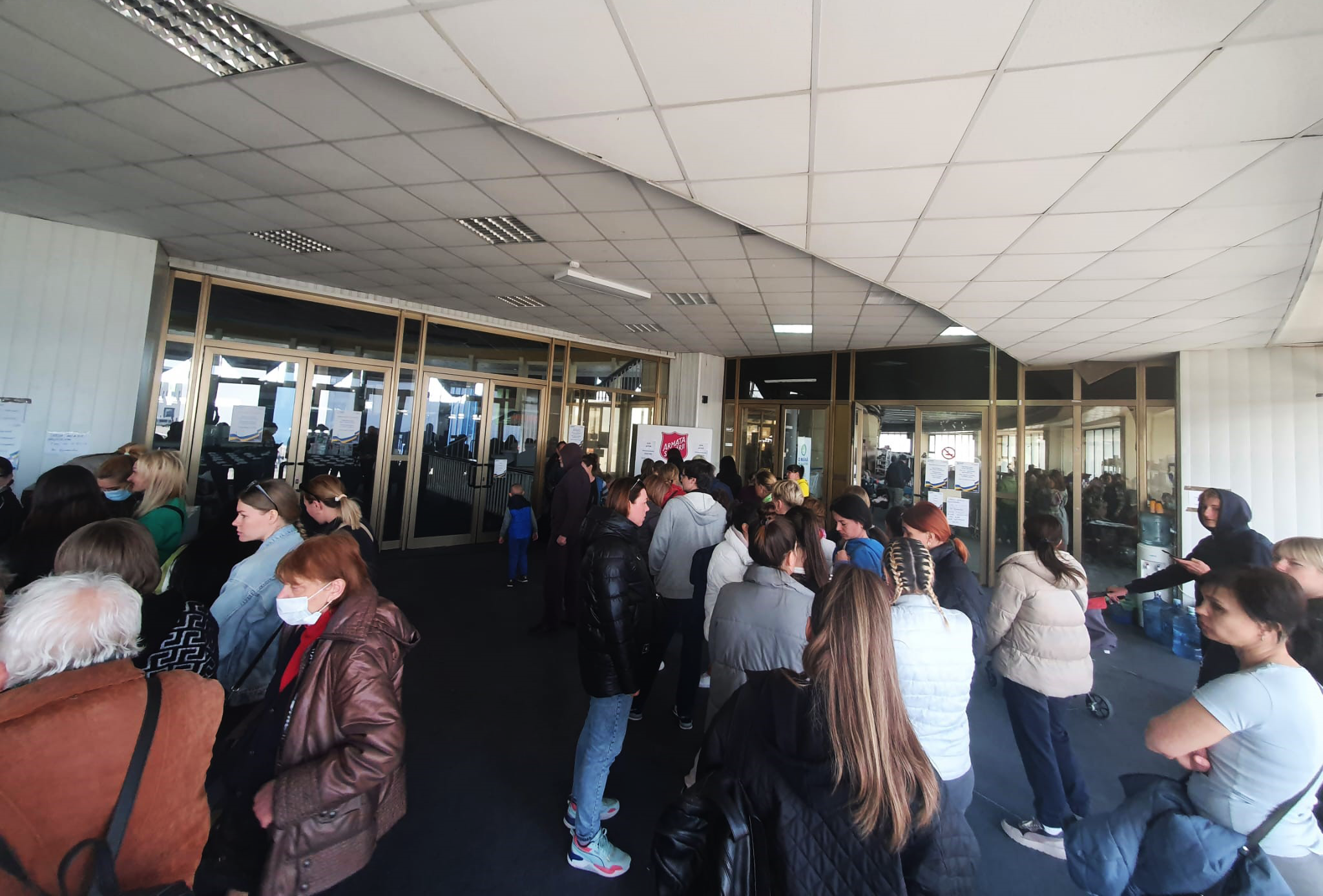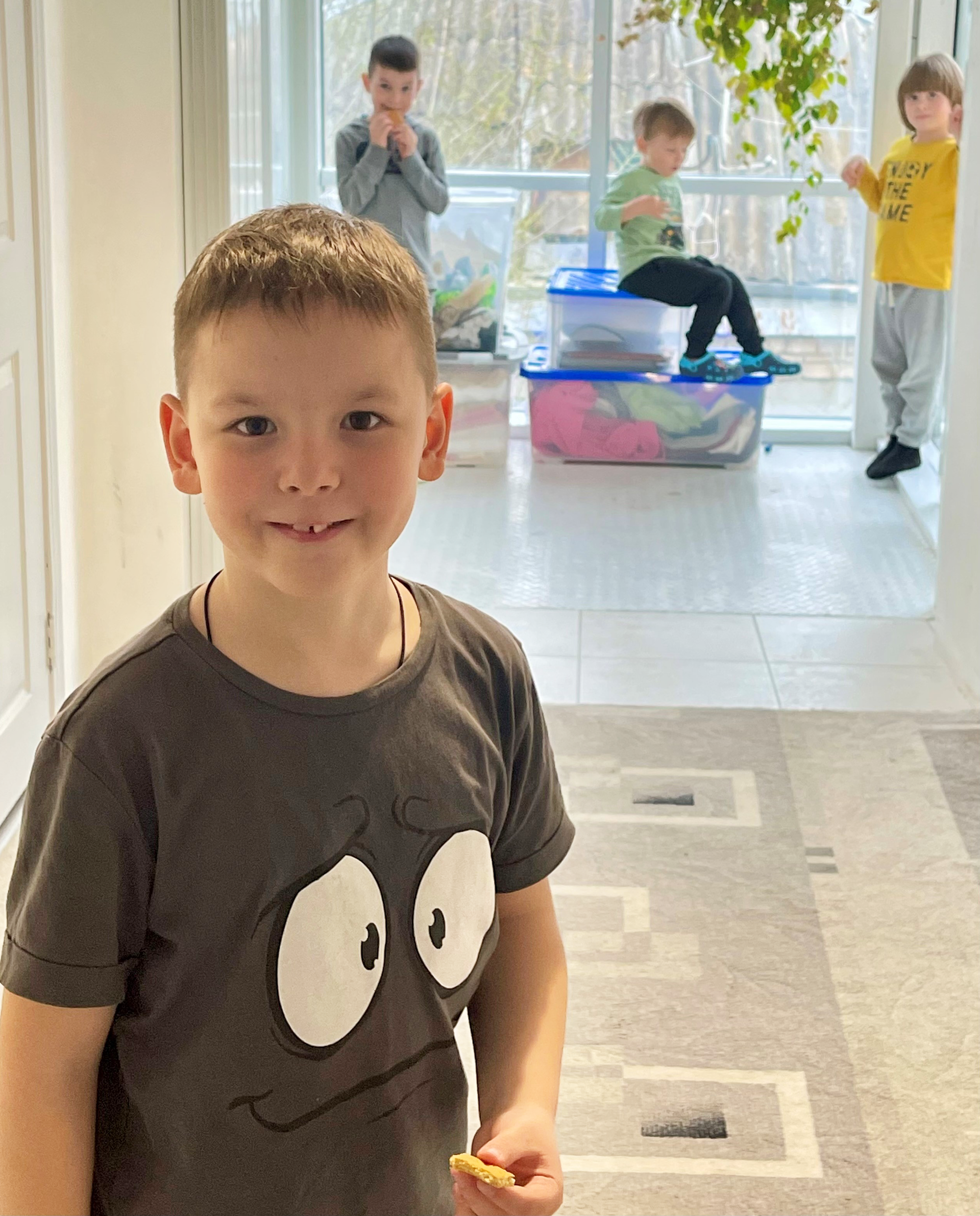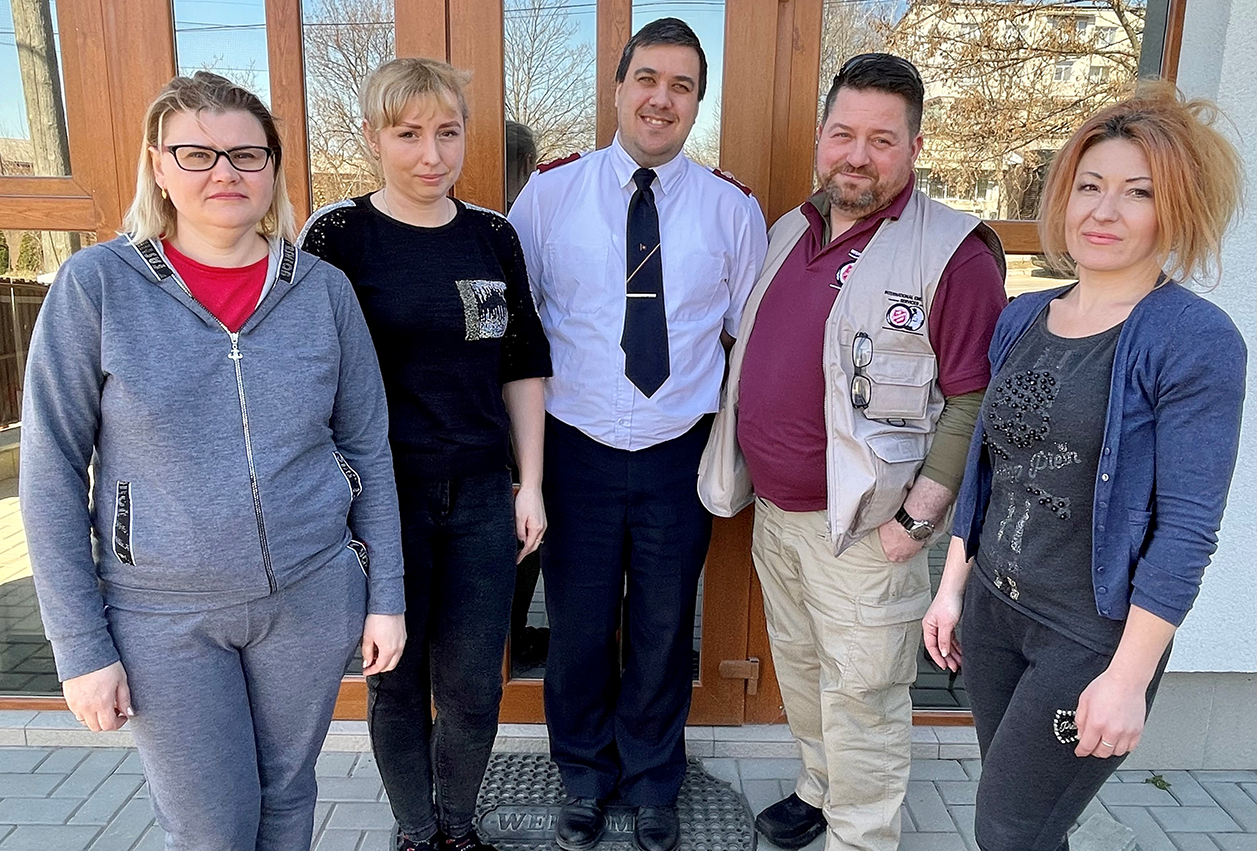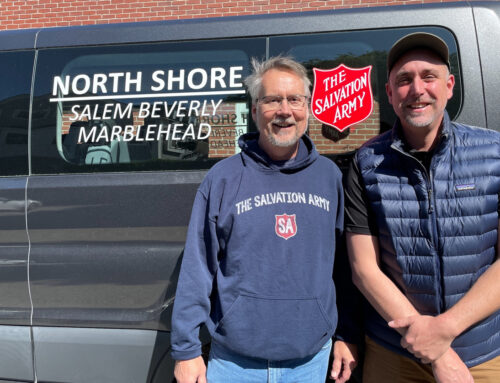The Salvation Army continues its support in Ukraine
by Warren L. Maye


Dennis, age 6, who is a Ukrainian refugee, takes shelter with his friends at The Salvation Army Eastern European Territorial Headquarters in Chisinau, Moldova. Printed on his grey T–shirt is a cartoon—a pair of widened eyes.

The image was originally meant to be humorous. But in his dire situation, it serves as a metaphor for the faces of many frightened Ukrainian children and adults who have found refuge at the headquarters during the horrific attack on their country by Russian forces. The headquarters houses up to seven families at a time, and provides private rooms, as well as kitchen and laundry facilities.
An estimated 75 percent of Ukrainian refugees in Moldova are also sheltered by private individuals or houses of worship. “If placed in a public shelter, the refugee populations average into the hundreds,” said Damaris Frick, International Emergency Services (IES)* coordinator in her latest report from Europe regarding the Army’s ongoing support of Ukraine.
Efforts to date in Slovak Republic:
- 258,000 refugees from Ukraine have arrived
- 47,322 refugees of which 20,651 are children, have applied for temporary refuge
- 20 percent of the people who cross the border have applied for temporary refuge
- 90 unaccompanied children have been placed in children’s homes
- 360 refugees have found employment
- 4,804 applicants have applied for Material Need Allowance (refugees have the right to be employed, but cannot register with the labor office)
Retired elderly refugees have the right to a pension. The State has set up three large–capacity centers (Humenné, Michalovce, and Nitra). It has also provided facilities for accommodation.
A law, under the name “Lex Ukraine,” was passed to help the refugees. It regulates their rights and obligations. It also provides an allowance for their accommodations, health care, and an exemption from local taxes and fees, as well as highway tolls. The possibility of setting up a bank account and finding meaningful work is also included.
 Three Ukrainian women with five children among them are sheltered at the Laloveni Corps outside of Chisinau, Moldova. Their hope is not to immigrate to the European Union, but to return home to their families in the Ukraine. Their husbands and sons over 18 years old could not leave their country at this critical time. In Moldova, there are over 100,000 women and children in transition, held in limbo for an unknown amount of time, and with limited support. The women shared their stories with Captain Andrei Iniutocichin, Divisional Commander of the Moldova Division, and Captain Ingvi Skjaldarson with IHQ’s International Emergency Services (IES).— John Berglund, IES official
Three Ukrainian women with five children among them are sheltered at the Laloveni Corps outside of Chisinau, Moldova. Their hope is not to immigrate to the European Union, but to return home to their families in the Ukraine. Their husbands and sons over 18 years old could not leave their country at this critical time. In Moldova, there are over 100,000 women and children in transition, held in limbo for an unknown amount of time, and with limited support. The women shared their stories with Captain Andrei Iniutocichin, Divisional Commander of the Moldova Division, and Captain Ingvi Skjaldarson with IHQ’s International Emergency Services (IES).— John Berglund, IES official
Regional and district municipalities are obliged to set up coordination reception centers where refugees can be accommodated for 10 days. They will be provided with social, medical, and psychological assistance.
Pezinok, Slovakia:
As many as 220 registered refugees since March have been sheltered in hostels, guest houses, and with families. The city also set up a coordination detention center in a sports hall, owned by the town and supported by a Salvation Army employee.
Galanta, Slovakia:
As many as 353 refugees are registered. They are being accommodated in hostels, in a secondary school dormitory, and with families.
City officials have offered The Salvation Army in Slovakia an opportunity to nominate a representative to the crisis management staff.
The Army will also work with the Slovak Catholic Charites.
Officials in both Pezinok and Galanta have asked The Salvation Army to help provide material support for the refugees, mainly food, fruit, vegetables, pasta, canned food, sweets for children, toiletries, shower gels, shampoos, creams, nappies for children, baby milk, school supplies, clothes, and shoes. The Salvation Army in Slovakia also wants to offer the refugees the right to work.
In agreement with the cities, Army leaders in Slovakia want to offer the refugees an opportunity to secure accommodation and work in the Czech Republic, the Netherlands, the UK, and to arrange for their transport to these countries.
The Salvation Army in Slovakia also wants to help with social security, by providing advisory services and on helping the most socially deprived refugees.
“It is expected that the first wave of refugees will be followed by a second wave, in which the more socially deprived and poorer inhabitants of Ukraine will arrive on the territory of the Slovak Republic,” said Milan Hýll, the Salvation Army manager in Slovakia.
*International Emergency Services teams assist with the Salvation Army’s response to emergencies and recovery projects worldwide. They are instructed to employ systems currently in place that are designed to optimize their effectiveness in the event of an emergency.




